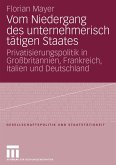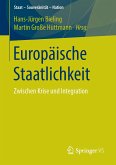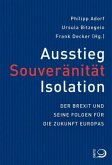Thomas Hörber analyses the building process of European integration. He shows the parliamentary discourses of France, Germany and Britain to be representative of the national position of these states towards the developing concept of 'Europe'. He covers all key events and developments of the time which had an impact on the European integration process and provides an explanation for the convergence of national discourses towards a common Europe. This development was by no means a given and the analysis of parliamentary debates shows for the first time how vigorous the debates were on European integration in the 1950s, and how, despite setbacks (notably the failure of the European Defence Community), the discussion went in favour of integration.
The 1950s can reasonably be called the foundation period of Europe. At the start of the decade pioneering institutions such as the OEEC, the Council of Europe and NATO were already in place. By the end of the 1950s all the major European communities, the ECSC, the EEC and Euratom had been established. 1954 saw a serious crisis for European integration when the European Defence Community treaty was rejected. The replacement in West European Union gave new impetus to European cooperation and new hope for full British involvement. Nevertheless, throughout the decade, it was not at all clear that European integration would be a success, particularly with Britain outside and a colonial alternative open to France, too. ^ One reason for focusing on the early integration period must, therefore, be seen in the wide divergence between Britain, France and Germany with regard to their concept for Europe. Britain's accession to the ECs in 1973 marked the end of the fundamental disaccord whether European integration should happen at all, notwithstanding the continued existence of greatly different opinions on the shape and the way cooperation should take. Not so earlier in the 1950s; British intergov ernmental preference and the continental European supranational choice, could not be reconciled and kept Britain away. The supranational aspiration survived, even with de Gaulle in power.
The 1950s can reasonably be called the foundation period of Europe. At the start of the decade pioneering institutions such as the OEEC, the Council of Europe and NATO were already in place. By the end of the 1950s all the major European communities, the ECSC, the EEC and Euratom had been established. 1954 saw a serious crisis for European integration when the European Defence Community treaty was rejected. The replacement in West European Union gave new impetus to European cooperation and new hope for full British involvement. Nevertheless, throughout the decade, it was not at all clear that European integration would be a success, particularly with Britain outside and a colonial alternative open to France, too. ^ One reason for focusing on the early integration period must, therefore, be seen in the wide divergence between Britain, France and Germany with regard to their concept for Europe. Britain's accession to the ECs in 1973 marked the end of the fundamental disaccord whether European integration should happen at all, notwithstanding the continued existence of greatly different opinions on the shape and the way cooperation should take. Not so earlier in the 1950s; British intergov ernmental preference and the continental European supranational choice, could not be reconciled and kept Britain away. The supranational aspiration survived, even with de Gaulle in power.
"[...] die durch diese Studie erstmalig erfolgte umfassende Analyse der damaligen Parlamentsdebatten [ist] auch über den reinen historischen Erkenntnisgewinn lohnend - führt sie uns doch klar vor Augen, dass europäische Integration stets mehr als nur eine Reihe von nicht-öffentlichen Regierungs- und Ministerialverhandlungen sein kann und muss." www.vorwaerts.de, 05.06.2007








